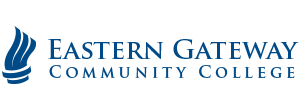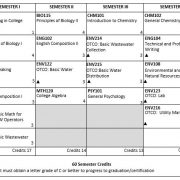Prekindergarten Care and Education (AAS)
Catalog
Overview
The Prekindergarten Care and Education Program is designed to provide the educational background needed for graduates to pursue careers in preschool/childcare centers and to meet state licensing requirements for an administrator as specified by the Ohio Department of Job and Family Services, Licensing Rules, #5101:2 12 25. Candidates will be eligible to obtain a Prekindergarten Associate License from the Ohio Department of Education. Students desiring to complete this degree should first check with their respective state’s department of education on their eligibility for licensure.
This option blends the early childhood preschool courses, which stress the care of the child from birth through age 4, with early childhood education courses required by the State of Ohio. The Field Experience Handbook (available on the Teacher Education Prekindergarten Care and Education page on the college’s website) provides the necessary documentation and points of contact for this process. Students will be required to complete field experiences in courses EDU 202, ECE 107, EDU 206, EDU 207 in a variety of settings. The following two items are required prior to the start of any field experience:
- A current (not more than one year old) resident state BCI and FBI background check must be on file at the college prior to the start of any course that requires field experience hours. It usually takes a couple of weeks for the background check to be received, so please provide adequate time to have your background check completed in order to prevent any delays with beginning your field experience. Students should reach out to their field experience site to ascertain if any other documentation is needed.
- The student’s field experience site must be established and approved by the course instructor no later than the end of the first week of the class. Students who have not submitted their Teacher Education Planned Field Experience form, at that time (by the end of Week 1), will be required to drop the course and reschedule for a later term.
Upon completion of the Prekindergarten Care and Education Program, the graduate will be able to:
- Apply principles of human growth, development and learning to the teaching of young children.
- Plan appropriate learning experiences for individual children and groups of children.
- Develop appropriate educational practices for young children to promote communication skills, and to foster the growth of skills in problem solving, decision making and critical thinking.
- Recognize individual needs and use appropriate teaching strategies to address children’s differences in developmental levels, ethnic backgrounds and learning styles.
- Use effective communication skills with children, families and coworkers.
- Recognize emergencies and provide appropriate first aid and CPR.
- Assist in designing an environment for child guidance, including daily program structure, to create and sustain a positive learning environment for children.
- Prevent, recognize and manage communicable diseases including the protection of child care staff members.
- Assist in initiating assistance for recognized child abuse and neglect.
- Meet the Ohio Department of Job and Family Services requirements for child daycare providers.
The Ohio Department of Education has approved Eastern Gateway’s program to offer a two-year associate degree license
Related Links
For additional information
James Hilton, Ed.D.
Teacher Education Program Director
Email: jhilton@egcc.edu
Phone: 1(800)682-6553 Extension: 1698
For questions regarding scheduling or financial aid, please contact Academic Advising.
Get Started
Start your new future today by enrolling with Eastern Gateway Community College.

